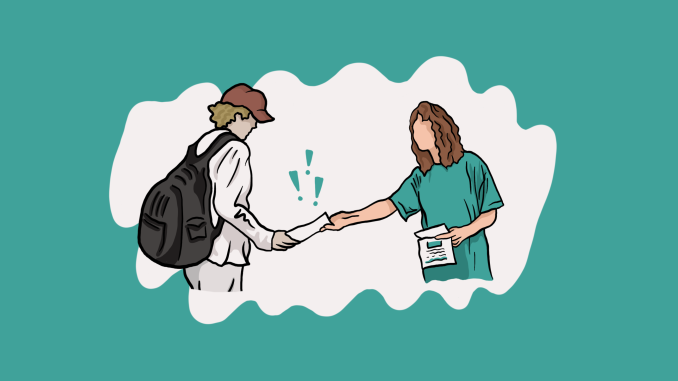
Content Warning: This essay contains mention of rape and sexual assault. If you find the content disturbing, please seek help at Tuttleman Counseling Services or click here to find resources regarding rape, sexual assault and sexual violence.
I’ve always been “rape girl.” Since middle school, chatter spread like a contagious disease.
I don’t know how the word rape became involved, I never called it that. I was sexually assaulted and abused for months by my first boyfriend when I was in the seventh grade.
When I reported my assault to my school, my guidance counselor asked if I ever held my boyfriend’s hand without obtaining consent from him first. I told her yes. She told me that meant he could easily turn around and state that I, in fact, was the one who assaulted him, and I should be careful what I accuse people of.
I faced the deep-seeded institutional blame and wrath — which most victims do — at an early age. I was disbelieved by peers, teachers and administrators to the point where I was forced to finish eighth grade from home and was banned from our graduation ceremony.
When I started college in August 2021, I was positive I would never be “rape girl” again. I looked in the mirror the night before I moved into my dorm and I told myself out loud, “Don’t you dare tell a soul, not even if it feels like you have to.” I recited that quote to myself incessantly in my head, like a mantra.
I wasn’t myself when I got to school. I wasn’t doing the things that kept me sane in the face of high school harassment: advocating against teen dating violence, speaking on panels for the anti-abuse non-profit Break the Cycle and creating virtual resource hubs for victims of domestic abuse. I was no longer defined by what had become an enormous part of my identity. I thought I had the opportunity to redevelop my character and become someone else.
Despite the pact I’d made with myself, I still felt I needed some form of emotional release to help subside the symptoms of my PTSD. I decided to allow myself the chance to sit in the background of club meeting for Student Activists Against Sexual Assault, an anti-sexual violence club listed as active on OwlConnect.
Still silent, but present.
I scanned the countless tables for SAASA at TempleFest in 2021, but it wasn’t there. I emailed the listed advisor and learned the club had been inactive for five years. That was unacceptable.
I faked being “normal” every day, and it was eating away at me. I felt I could go on for the better part of my freshman year ignoring my survivorship because there was no safe, non-mandatory reporting space for survivors on our campus.
In the spring of 2021, I threw myself back into advocacy, spending late nights both by myself and with a few friends planning the logistics for the official kickoff of SAASA at the start of my sophomore year that fall.
I knew I was risking becoming “rape girl” again, but I had to take that chance. I would have given anything to have a group of people who understood what it meant to be victimized.
Temple desperately needed a group of peer advocates, and I knew from my previous work that college-aged women were among the most vulnerable to sexual violence. The need for a safe space with allies on our campus crushed any fears of isolation that I harbored.
I knew as soon as we packed up SAASA’s first TempleFest table in 2022 that ice cream socials and bake sales weren’t going to cut it.
I thought back to my experiences in middle school. We desperately needed institutional and cultural reform. I owed it to the innocence of my younger self and to everyone who has both since then, and prior to, been victimized in a similar way. Free time disappeared at the moment of my revelation, and I immersed myself in research.
I discovered It’s On Us, Take Back the Night Foundation and Callisto, all of which have become incredible survivor-centered resources and assets to Temple’s campus. I began volunteering at Take Back the Night Foundation on the side, and I am entering my second year as It’s On Us’ LGBTQ+ Caucus Chair.
The expansive network of students I have encountered since the start of SAASA is an experience I wouldn’t trade for anything. I see and interact with people on campus that I recognize from meetings, information tables or events.
Restarting SAASA did not invite my peers to ostracize me the way I had expected. Instead, it embedded me in campus life.
I felt like a stranger in my body before SAASA, like I was lying to everyone around me. The more I got to know people, the less I was willing to share about myself out of fear that I might let the secrets of my past slip.
In the survivor advocacy community, it is often said that survivors do not wish to be defined by the violence they suffered. I’ve come to learn in this past year that no survivor’s experience is the same, and none of us can speak on behalf of one another’s journey.
I have reclaimed and redefined “rape girl” in my time at Temple. I no longer feel the constraints of the unofficial survivor manual. I can be “rape girl” and if advocacy is what keeps me sane, then so be it.


Be the first to comment